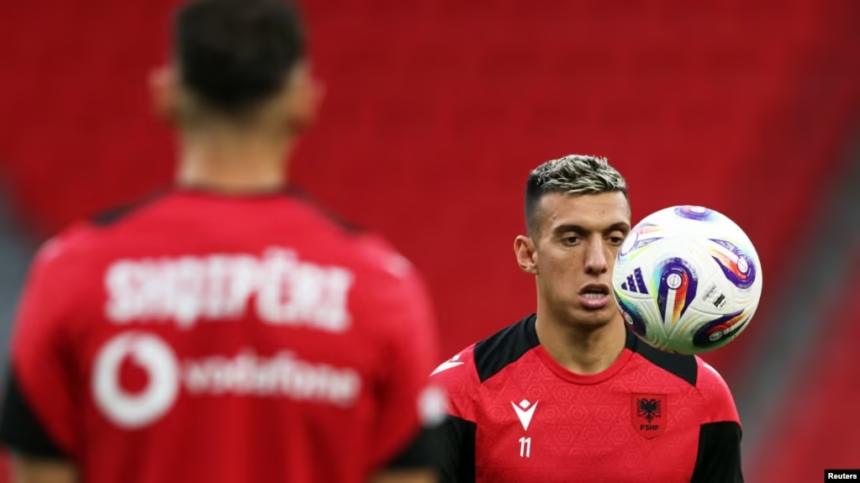Thousands of police forces have been mobilized in Albania’s capital, Tirana, today to ensure the smooth conduct of the highly anticipated football match between the national teams of Albania and Serbia. The game is scheduled to take place this evening at the “Arena Kombëtare” stadium.
Albania and Serbia are part of Group K in the qualifying matches for the 2026 FIFA World Cup, alongside Latvia, Andorra, and England. Currently, Albania holds three points and is second in the group, while Serbia has yet to earn any points.
The Serbian team arrived in Tirana on Friday afternoon and, under extensive police escort, was accommodated in their hotel before conducting necessary training sessions.
The State Police has appealed to citizens and fans to contribute to a civic and cultured atmosphere. However, beyond the usual excitement of a football match, games between Albania and Serbia carry additional layers of emotion. Citizens of both countries are engaged in a significant rivalry rooted in historical and ethnic tensions, particularly concerning the conflict in Kosovo and the broader history of the Balkans. Serbia continues to refuse to recognize the statehood of Kosovo, a country with an Albanian majority.
Nearly half of the Albanian national football team players are of Kosovar and North Macedonian origin. Therefore, as reported by the Associated Press, for these players, the competition is a mix of history, politics, and national pride, serving as another reminder that sometimes sport is anything but just a game.
In 2014, a match between the two national teams in Belgrade was interrupted after a drone carrying a “Greater Albania” flag entered the stadium, inciting clashes between players and nationalist chants from Serbian fans against Albanians.
This time, Albanian security authorities have announced the use of anti-drone equipment and have banned racist banners, fireworks, flares, pyrotechnics, and other disruptive items from the stadium.
Albanian coach, Brazilian Sylvinho, has urged his players to focus on the 90 minutes of play, give their best, respect the opponent, and completely ignore the social media landscape, which has been filled with patriotic content in recent days. At a press conference on Friday, he expressed confidence that players from both teams are psychologically prepared to handle the pressure of the game and the situation.
Serbia’s coach, Dragan Stojković, also stated at a Friday press conference that the match is very serious for his team and that the focus is on the field and victory, choosing not to comment on ethnic relations.
However, in contrast to his coach, Serbian President Aleksandar Vučić escalated tensions days earlier when, at a rally with his supporters, he called on Stojković to ensure Serbia wins. “Go there and defeat them,” Vučić said, referring to Stojković, who was in the crowd.
The President of the Albanian Football Federation, Armand Duka, has called on Albanians to view the match as a sporting event “where teams receive support and positive energy from fans to reach the goal.” Notably, the official group of Albanian supporters, known as “Tifozat Kuq e Zi,” will not be in the stadium for the June 7 match due to dissatisfaction with the Albanian Football Federation (FSHF), primarily regarding ticket sales.






